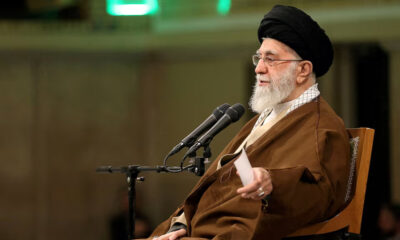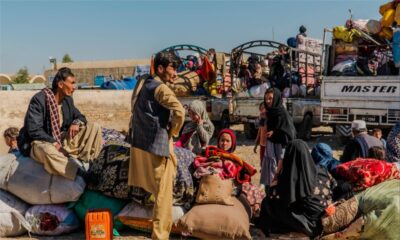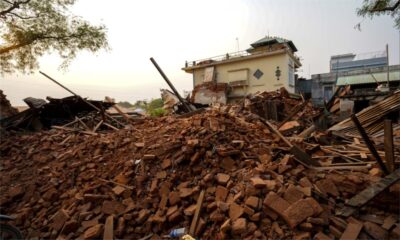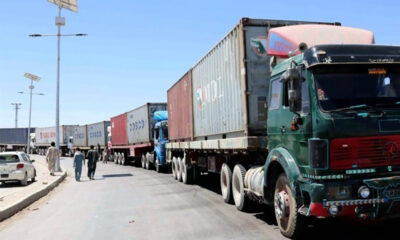Latest News
IEA’s supreme leader issues Eid ul-Fitr message
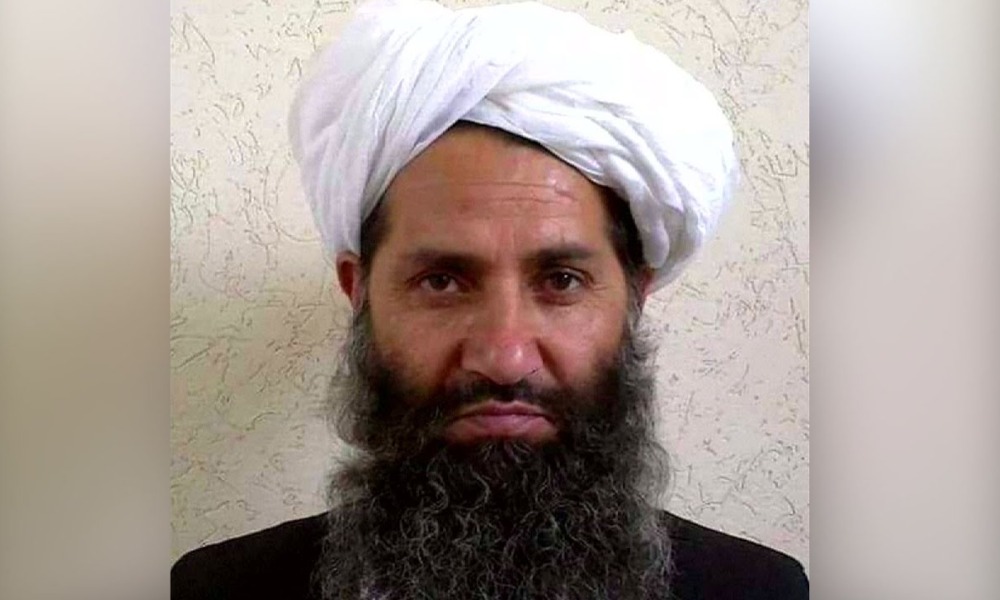
The Islamic Emirate of Afghanistan’s supreme leader Mawlavi Hibatullah Akhundzada on Tuesday released an Eid ul-Fitr statement and said the people of Afghanistan “should be thankful that after many conflicts, we have got security and a Sharia system.”
He also urged the wealthy to help the needy, including widows, orphans and families of martyrs, during this time.
Akundzada called on the Islamic Emirate’s officials and forces to work with the people and to ensure their rights in accordance with Sharia and their happiness is taken into account.
He also urged all parties to cooperate with the ministry of vice and virtue in order to maintain the law.
“Remarkable corrective measures have been taken in the fields of culture, education, economy, media and other sectors, and the wrong intellectual and moral effects of the occupation are coming to an end,” he said in the statement.
“Our believing compatriots should consider these reform measures more important than anything else; because in the light of religious principles and Sharia, it guarantees the happiness of our worldly and hereafter life and causes happiness, prosperity and permanent salvation of the society,” Akhundzada said.
He called on the religious scholars in the country to “pay attention to their responsibility” especially in terms of informing people about religion, and cooperating with the ministries of vice and virtue, and education, higher education and information and culture.
According to Akhundzada, every nation and country achieves dignity, security and real prosperity when there is no rebellion and rebelliousness among the people. He said: “Therefore, the responsibility of reforming the people and informing them has been entrusted to the shoulders of the scholars and they should fulfill their obligations in this field in the best way and continue to work in the fields of reforming and enlightening people’s minds in mosques, meetings, media and programs and be a good means of guiding them.
“In the same way, they create more harmony and an atmosphere of trust between them. They should avoid differences and pay attention to the religion and the supreme interests of the people.”
Akhundzada also said that everyone has a responsibility to improve their homeland.
“So now, all responsible or irresponsible Afghans, we have an obligation to make our country prosperous and stand on its feet.”
He also said that Afghans “should not rely on others” and instead support themselves. In line with this, local businessmen and business owners of the country “have more rights than others,” he said adding that they have the full support of the IEA.
He stressed the need to maintain stability and security.
On relations with neighboring countries and the international community, Akhundzada said: “Afghanistan wants positive relations with its neighbors, Islamic countries and the world, based on mutual benefits and within the framework of Islamic principles, since Afghanistan does not want to interfere in the internal affairs of other countries, it also insists that other countries should not interfere in our internal issues, doing so is beneficial both for the world and Afghanistan.”
He said the prevention of poppy cultivation in the country was a “great achievement” and that “Afghanistan will be cleaned of poppy cultivation and drugs soon.”
He noted that drug addicts had been removed from the streets in Kabul and in provinces, as it was “another Sharia obligation that the Islamic Emirate has fulfilled.”
Akundzada stated that efforts were being made to improve the economy.
“Extending education and training to the whole country and providing good training to all children is one of the responsibilities of the Islamic Emirate and effective plans for further development are also worked on,” he said.
He touched on other governance issues and on the judiciary system.
“The courts and judiciary system of the Islamic Emirate, which has a special status among all the organizations, is a part of the Islamic System whose work is considered more important, because the main goal of the Islamic system is the protection of the head, wealth, intellect, status and all the rights given by Allah, therefore, all the judges and court’s officials are instructed to be more serious in obtaining people’s rights, resolving disputes and avoid favoritism, look at the crime instead of criminal, defend the oppressed, prevent the oppressor and solve people’s cases without delay and hindrance,” he said.
In addition he urged the security and defense forces to “do justice, generosity and modesty and avoid arrogance, pride, oppression, betrayal and wasteful spending.
“Strictly avoid all kinds of discrimination,” he said adding: “Do not offer jobs to your relatives, the appointment should be based on merit.”
Latest News
UN rights experts call on Pakistan to stop removal process of Afghan refugees
The experts urged Islamabad to immediately stop mass internal relocations, deportations, arrests, evictions, intimidation and other pressures on Afghans
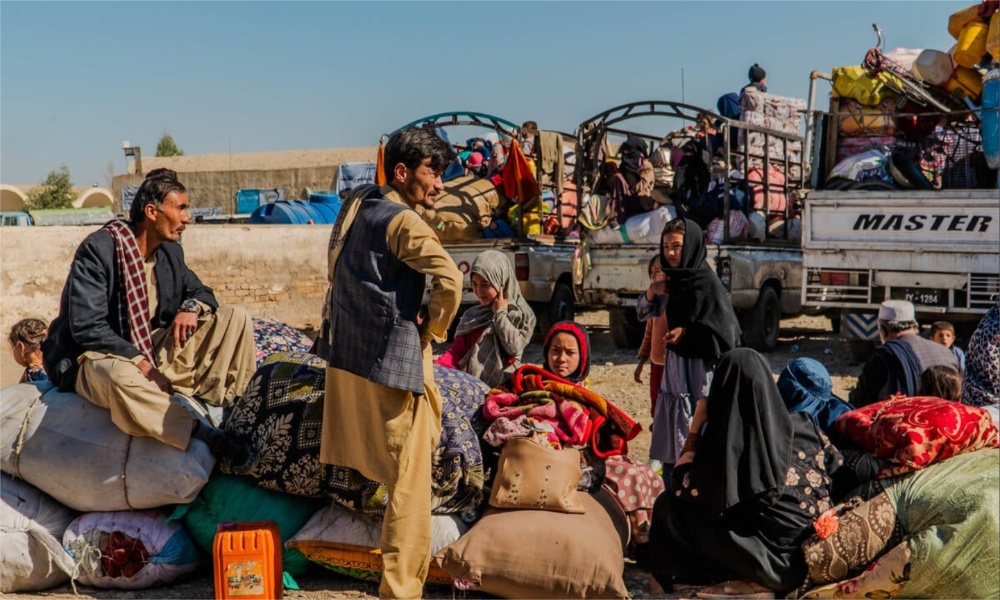
UN human rights experts have called on the Pakistan government to stop their plans to forcibly remove Afghans from the cities of Islamabad and Rawalpindi, nor to deport them to Afghanistan.
According to a statement issued on Friday, the UN experts (as listed below) called on Pakistan to continue its important role as a neighboring country with a long history of hosting Afghan refugees.
The deadline for their voluntary departure was set for 31 March, but Islamabad moved the deadline by a few days to take Eid-ul-Fitr into account.
“Millions of Afghans in Pakistan are at risk of being pushed back to Afghanistan without regard for their genuine protection concerns – including gender-based violence and the systematic dismantling of the rights of women and girls – in violation of international human rights law and refugee law, and disregarding UNHCR’s non-return advisory,” the experts said.
“We urge Pakistan to immediately stop mass internal relocations, deportations, arrests, evictions, intimidation and other pressures on Afghans to cross the border into Afghanistan, and to uphold the absolute and non-derogable principle of non-refoulement,” they said.
The experts expressed particular concern about the gendered and intersectional impact.
The UN experts have repeatedly spoken out against Pakistan’s Illegal Foreigners’ Repatriation Plan of September 2023, which has already pressured hundreds of thousands of Afghans to uproot their lives and return to Afghanistan.
Ahead of the 31 March deadline, the UN documented a worrying increase in arrests of Afghans. Many desperate Afghans have contacted the experts, fearing persecution by the Taliban in Afghanistan if they are forced to return.
“The most vulnerable are Afghan women, girls, LGBTI persons, ethnic and religious minorities, former government officials and security personnel, human rights defenders, and media workers,” the experts said.
“Children, especially unaccompanied, are at heightened risk of trafficking, child marriage and abuse, while persons with disabilities and older persons are also particularly vulnerable. They should all be individually assessed.”
The experts expressed concern about returns of Afghans to Afghanistan from other countries, potentially contravening international human rights and refugee law.
The experts also acknowledged security risks, including terrorist attacks in Afghanistan, as well as Pakistan.
The experts noted that many Afghans who had left for Pakistan, having been given reasonable expectations of being resettled in a third country, had their dreams of a secure future shattered by the sudden halt of resettlement programmes.
They stressed that funding cuts will reduce the ability of the de facto authorities in Afghanistan, together with humanitarian agencies, to support a large influx of people from neighboring countries.
“Abrupt and drastic funding cuts by donors are already having a severe impact on much-needed humanitarian assistance to Afghans,” the experts said.
“Given the deteriorating human rights situation in Afghanistan, durable solutions are needed for Afghans outside the country, with strong support from the broader international community.”
The experts are as follows:
Richard Bennett, Special Rapporteur on the human rights situation in Afghanistan; Siobhán Mullally, Special Rapporteur on trafficking in persons, especially women and children; Laura Nyirinkindi (Chair), Claudia Flores (Vice-Chair), Dorothy Estrada Tanck, Ivana Krstić, and Haina Lu, Working group on discrimination against women and girls; Ben Saul, Special Rapporteur on the promotion and protection of human rights and fundamental freedoms while countering terrorism; Reem Alsalem, Special Rapporteur on violence against women and girls, its causes and consequences; and Balakrishnan Rajagopal, Special Rapporteur on the right to adequate housing.
Latest News
Pakistan urges global community to block arms flow to militant groups in Afghanistan

A Pakistani diplomat on Saturday called on the international community to block the flow of modern and sophisticated weapons to militant groups in Afghanistan.
“Terrorist armed groups are in possession of billions worth of illicit arms abandoned in Afghanistan,” Syed Atif Raza, a counsellor at the Pakistan Mission to the UN, told an Arria-Formua meeting of the UN Security Council, convened by Sierra Leone.
“We call upon our international partners to recover the vast stockpile of abandoned weapons, prevent their access to armed terrorist groups and take measures to close this thriving black market of illicit arms,” he said.
Pakistani officials have repeatedly claimed that attacks in the country are planned in Afghanistan and that militants use weapons left behind by foreign forces.
The Islamic Emirate, however, has denied the claim, saying Afghanistan is not responsible for Pakistan’s “security failure”.
Latest News
Gandapur says no Afghan refugee will be ‘forcefully’ expelled from Khyber Pakhtunkhwa
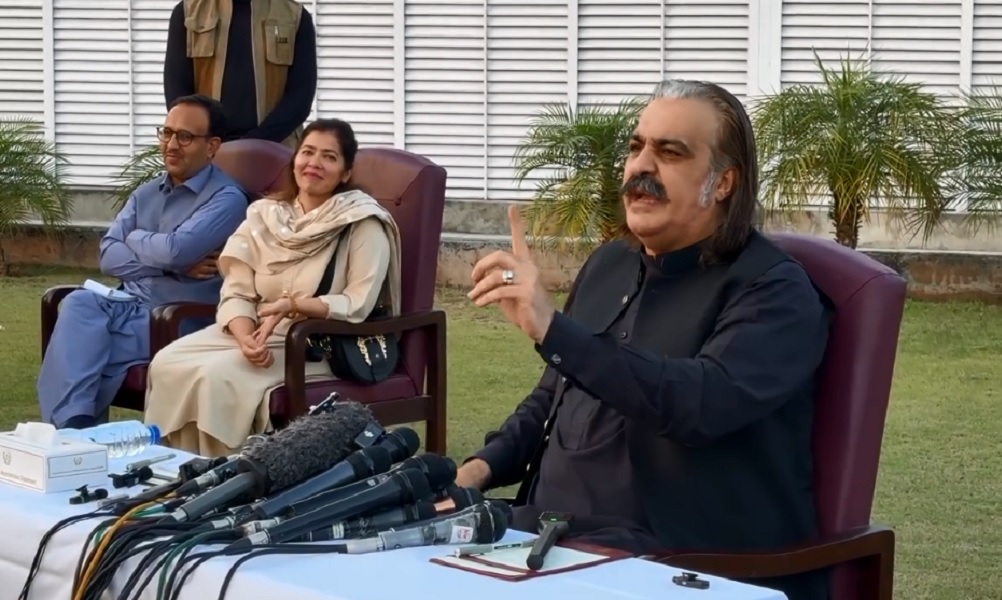
Amid rising tensions over Pakistan’s repatriation plans for illegal Afghan nationals, Khyber Pakhtunkhwa Chief Minister Ali Amin Gandapour said on Friday that no refugees will be forcibly deported from the province.
“We will not allow any Afghan refugee to be expelled by force from Khyber Pakhtunkhwa. We stand firmly against such inhumane deportations,” Gandapur said at a press conference.
The remarks came as the Pakistani government ramps up efforts to repatriate undocumented Afghan refugees and Afghan Citizen Card (ACC) holders, following the expiration of the voluntary return deadline on March 31, 2025.
“The past situation, where Afghan refugees, including women and children, were stranded at the border, tarnished Pakistan’s image,” Gandapur said, reaffirming the provincial government’s commitment to a dignified repatriation process.
“We are setting up camps for voluntary repatriation, and anyone wishing to return will be helped. However, we will not forcibly expel any Afghan refugee,” he stated.
Afghans holding Afghan Citizen Cards (ACC) — issued by Pakistan authorities and held by 800,000 people, according to the United Nations — face deportation to Afghanistan after the deadline.
More than 1.3 million Afghans who hold Proof of Registration (PoR) cards from the UN refugee agency, UNHCR, are also to be moved outside the capital Islamabad and neighbouring city Rawalpindi.
-

 Latest News5 days ago
Latest News5 days agoAfghanistan’s reconstruction is in the interest of EU: Uzbek president
-

 Latest News4 days ago
Latest News4 days agoMinistry of Economy calls on US to release Afghanistan’s frozen funds
-

 Latest News4 days ago
Latest News4 days agoPakistan ‘extends’ deadline for a week for Afghans to leave the country
-

 World4 days ago
World4 days agoAs Iran tensions build, US military moves warplanes to reinforce Middle East
-

 Sport4 days ago
Sport4 days agoIPL 2025: Batters in race for prestigious Orange Cap
-

 World5 days ago
World5 days agoIsrael kills Hezbollah official in deadly Beirut airstrike
-
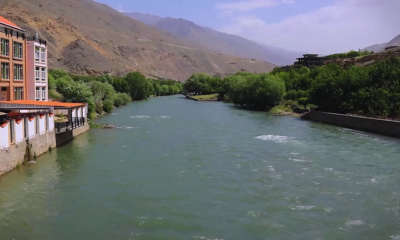
 Latest News4 days ago
Latest News4 days agoPanjshir to Kabul water conduit project ‘waiting for budget approval’
-
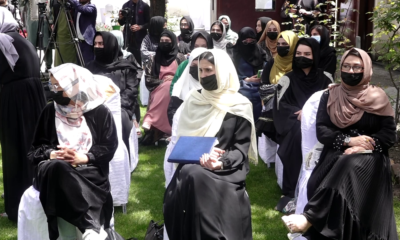
 Latest News4 days ago
Latest News4 days agoFemale journalists complain about lack of access to accurate and timely information




